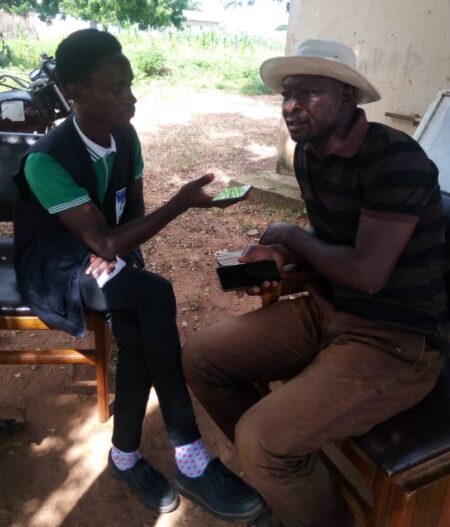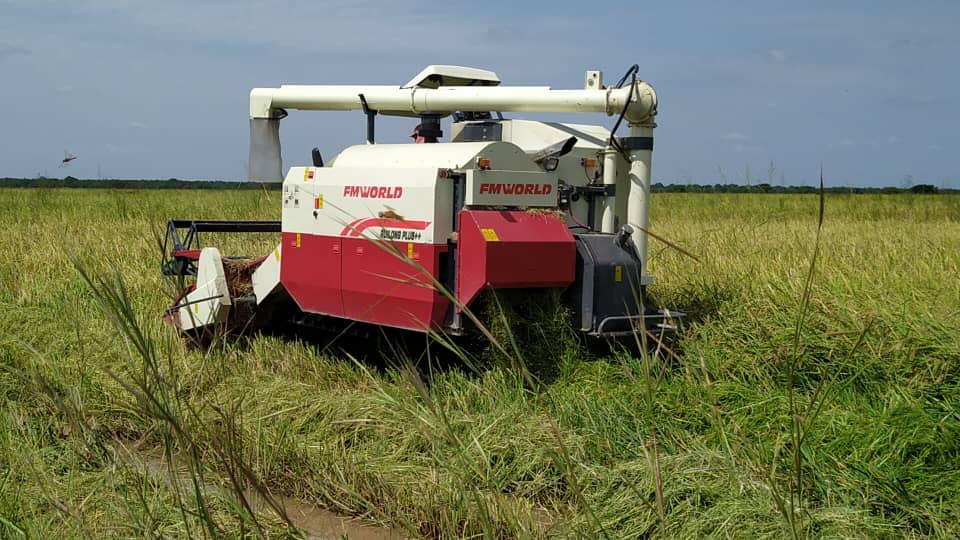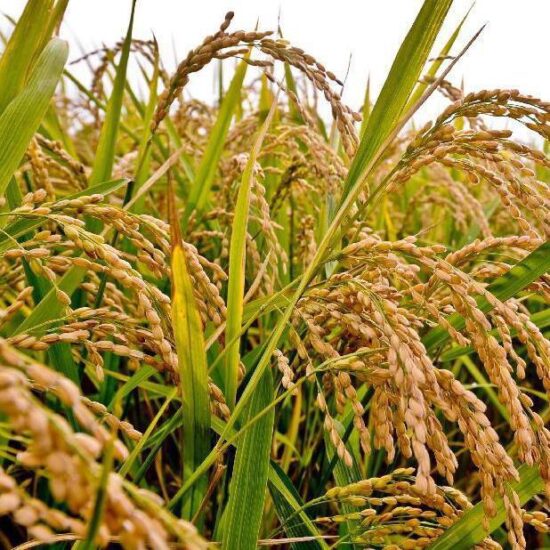It is an undeniable fact that cocoa and gold have contributed immensely and will continue to contribute to the economy of Ghana.
In recent fall in the world prices of these two commodities have resulted in a drop in terms of the foreign exchange Ghana derives for exporting cocoa and gold.
The uncertainty in the pricing of cocoa and gold on the international market has triggered many Ghanaians and business operators to wonder whether Ghana can become prosperous if it should bank its hopes mainly on cocoa and gold for foreign exchange.
These thoughts by many called for a search for another commodity to support Ghana’s economy and all hands are pointing towards rice production in commercial quantities.
Against this background, I took a trip to the Builsa South District of the Upper East Region to interact with some commercial rice farmers in the Fumbisi rice valley to affirm the state of their product and whether they can produce to meet the growing demand for rice consumption in the country and possibly for export.
These farmers; young and old alike numbering up to hundreds said they can farm and feed the country with their produces, and even for export.
In 2019, the then, Deputy Minister of Food and Agriculture, Kennedy Osei Nyarko made a pronouncement that the country consumes close to 940,000 tonnes of rice every month as compared to the production capacity of 400,000 tonnes, which makes a deficit of 540,000 tonnes.
Interacting with the chairman of the Builsa South Commercial farmers association (BSCFA), Caesar Akinkang, said they as farmers were aware of the high demand for rice, and do not only farm to feed the Region, but have set an agenda to feed the population of Ghana.

Mr. Akinkang added that they have expanded their farmlands and will do more with a little external investment from the government or interested business entities.
“We see farming as a business and have invested a lot of our resources into it, what we want now from government or interested business partners are warehouses to store our produce after harvest. Each year, we struggle with storage facilities and we think that has not been helping us as farmers.”
The farmers, numbering up to hundreds said the least farm size a farmer has was at least 50 acres and the highest was closed to 2000 acres. This, the farmers noted that with little push from government and other organizations, the country’s economy will soon be the leading world derive rice hub.
The secretary of the Association, Daniel Atuilik also explained that the lack of modern tools and equipment poses a challenge to their farming activities as majority of them still depend heavily on local tools for production despite the expansion of their farmlands.
“A lot of us still depend heavily on local tools for production. Will you believe that in this modern era we still use shackles to harvest rice about 150 acres? Well, that is what some of us do here in the Fumbisi Rice Valley.”

What of storage facilities? How is that a challenge to these farmers? Enoch Akisiba, organizer of the association on a sad tone said each year, they as commercial farmers usually struggle for space to either store or dry their rice production.
“As farmers, despite our problem with insecticides and pesticides, our next worry is always storage places for rice. Imagining farming on a large scale and at the end, no space to dry or store your produces that is bad for us here.”
As human beings, we were created to confront challenges so as the farmers. But to what extent can they stand amid these challenges. Well, the farmers opined that such challenges cannot deter them from farming because they were optimistic about the prospects of the farming business.
But how can they march up with the current trend of foreign rice as Ghana spent close to 331 million dollars to import rice annually?
Mr. Akoka explained that such a threat can only be addressed if the government and other organizations mass a stop on the importation of foreign rice and encourage the consumption of local rice.
“What we are saying is that we are capable of meeting the high demand of rice as we have the resources to produce to any demand. Also what we want is the government or relevant stakeholders to limit, if they cannot stop completely the importation of foreign rice. Yes, if government adheres to our calls, and Ghanaians are ready to consume our rice, we as Ghanaians are halfway to independence again.”
How about the department of agriculture in the district? What are the steps taking to address the concerns of the farmers? In an interaction with the District Director of Agriculture in the Builsa South District, Sylvan Dauda Danaa, opined that his outfit has not relaxed after hearing the farmers’ plight.

Mr. Danaa added that his outfit with support from the regional department of agriculture has created a platform that seeks to address their plight.
“We are on it, and I will say that with support from other nongovernmental organizations, we have been able to create platforms that have a direct link with the farmers and their potential buyers. I will say we are not relaxed and will continue to work hard through advising them as well as sharing their concerns with the rightful authorities.”
Farming will continue to be the backbone for Africa and for that matter Ghana and rice production will be the surest way to reawaken the economic muscles of Ghana.
Source: A1Radioonline.com|101.1MHz|Moses Apia|Ghana


